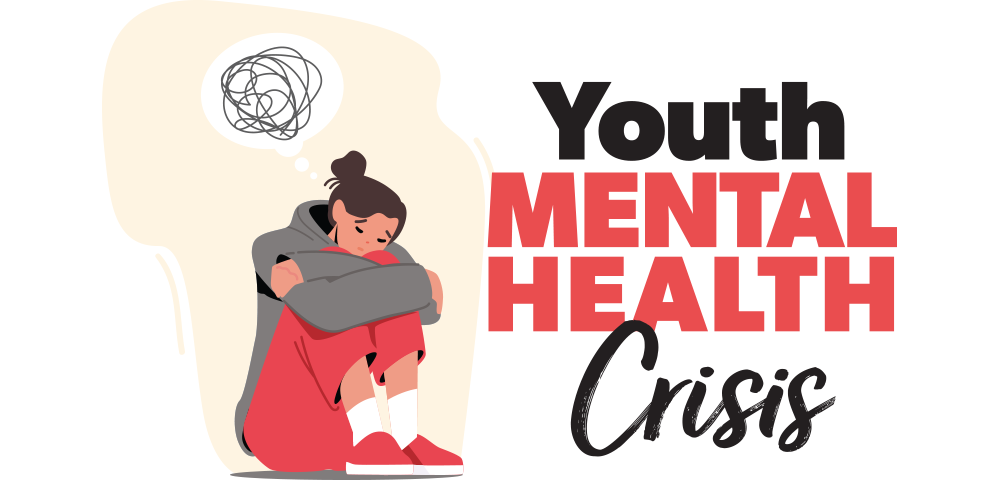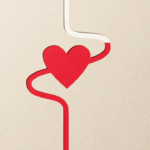
Although some people assume that childhood and the teenage years are times of carefree bliss, sadly this is often not the case.
Although some people assume that childhood and the teenage years are times of carefree bliss, sadly this is often not the case.
There is an ongoing mental health crisis among young people in North America. According to the National Institutes of Health (NIH), one in five or more children and teens globally experience mental health conditions, yet they remain underdiagnosed and undertreated. Depression, anxiety, and behavioral disorders are among the leading causes of illness and disability among adolescents, and 49.4% do not receive the necessary treatment or counselling from a mental health professional. In the U.S., 20% of children and young people aged 3–17 years have a mental, emotional, developmental, or behavioural disorder. In Canada, mental illness affects around 1.2 million teens, and less than 20% receive appropriate treatment. The data does not include the mental health impact of the COVID-19 pandemic.
In the U.S., the mental health crisis affecting children and teenagers is overwhelming hospital emergency rooms. “Parents are bringing in children as young as five or six years old with psychiatric emergencies like anxiety, depression, and suicide attempts – but they’re finding ERs are often unable to help. This crisis is only getting worse,” states Dr. Jenkins, psychiatrist and medical director at Rady Children’s Hospital in San Diego, California.
As a retired naturopathic doctor, my training encompassed whole-body healing, so my practice has always focused on physical and mental health. As I watched the mental health crisis escalate, I decided to write a book to shed light on this growing crisis and increase awareness about the many causes of mental health problems and the non-prescription solutions available to people suffering. But awareness without action means little, so changes are needed quickly. It is an epidemic in plain sight, but many refuse to see it.
In spring 2024, I am publishing an e-book on the youth mental health crisis to raise awareness and provide valuable information about the size and scope of this critical issue. Concurrently in WV magazine, I will share a series of articles related to the book, and for readers needing more in-depth information, I will post the entire chapter online.
NUTRITIONAL PSYCHIATRY
According to neuroscience, our brains do not finish developing and maturing until our mid-to-late 20s. Children whose brains are still under construction are much more susceptible to all the factors that can cause mental health problems. They are also less able to assess risks, and the teen brain gets much more pleasure from the “reward system.”
The developing brain requires a higher level of nutrients, which is one reason teens want to eat a lot more – think about how much food some teenagers can consume! The teen years are a critical time when a diet containing high-quality fat and protein is necessary for learning and promoting growth and development. Additional nutrition is vital for children participating in physical and demanding extracurricular sports.
Nutritional psychiatry leans heavily on the connection between diet and brain health. It uses food and supplements to provide essential nutrients to prevent and treat mental health conditions. This type of intervention is becoming widely accepted as more effective options are necessary as mental health concerns grow.
Studies indicate that lack of dietary nutrients, namely essential vitamins, minerals, and omega-3 fatty acids, contribute to the development of mental health disorders. These nutrients are often deficient in the general population in North America and have been shown to be exceptionally deficient in people with mental health disorders. The association between the gut-brain relationship is also very important. Alterations in this sensitive microbial environment can lead to mental health disorders, including learning disorders, anxiety, depression, autism, and more. There are many things that parents and teens themselves can do to prevent and support mild-to-moderate mental health disorders. Children with more serious mental illness may need to be on medication and under the care of a psychologist or psychiatrist.
Increased awareness about the current mental health crisis in children and teens, increased knowledge of the importance and effectiveness of a healthy diet and lifestyle, and recognition of the role of natural supplements can help prevent and treat many mental health disorders.
In my new book, coming in 2024, I focus on diet, lifestyle, strategies, and natural approaches for preventing and treating many common mental health disorders in children and teens. I hope to give parents and our youth a better understanding of the tools needed to deal with life’s uncertainties.












